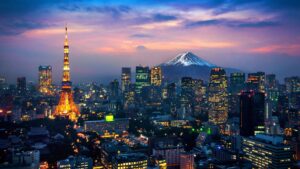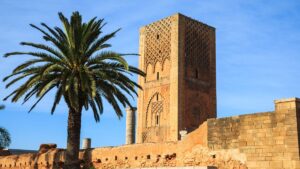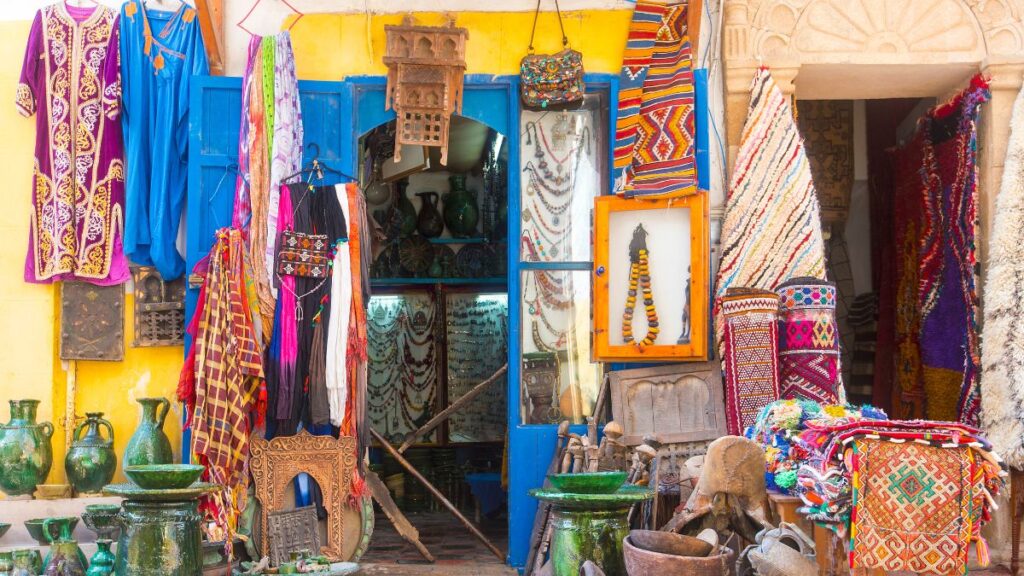
Key Takeaways
- Spring and autumn are the best time to visit Morocco, with mild weather, pleasant temperatures, and fewer tourists. It is perfect for exploring cities, mountains, and vast deserts, or hiking in high altitudes like the Atlas Mountains.
- In the summer months, stick to the Moroccan coast (think Casablanca) for cooler weather and balmy evenings, avoiding extreme heat and summer crowds.
- The winter months are a treat. Expect cool nights, desert camp experiences, or even skiing in the Atlas Mountains. Just pack warm clothing for chilly temperatures and unique winter sun retreat.
- Learn basic French or Arabic to connect with locals and explore cultural hotspots like souks in bustling Berber communities. For reliable travel, use an Ubigi eSIM for seamless connectivity on all your Morocco itineraries.
- Respect Moroccan traditions. Dress conservatively in countryside, Berber villages, and at religious sites. Get ready to haggle for Moroccan cuisine and souvenirs in bazaars.
Morocco’s best time to visit is in spring or autumn when the mild weather allows you to enjoy cities, deserts and mountains. You’ll experience cool nights and clear days, with less crowded places such as Marrakech or Chefchaouen.
With bustling souks, golden sands and snow-peaks your pick depends on what you want to behold. The sections below detail planning tips for your next trip, along with how to stay online with an Ubigi eSIM.

Best Times to Go to Morocco
Morocco’s weather changes from region to region and season to season, shaping your travel experience everywhere from the Atlas Mountains to the Sahara Desert. Choosing the best time for your Morocco vacation depends on your interests, your heat tolerance during the summer months, and whether you’re after cooler weather in autumn, winter skiing in the mountains, or a Moroccan adventure exploring Marrakech and lively medinas.
Spring (March to May)
Spring is one of the best seasons to go to Morocco, offering pleasant temperatures and comfortable weather that make it perfect for outdoor activities. The temperature is just right, neither extreme heat nor cold. You can enjoy sunny days exploring the medinas or relaxing in coastal retreats. Marrakech and Fez burst into color with vibrant blooms, giving a special ambience and freshness to the air during this harvest season.
In April and May, expect increased tourist numbers, particularly in popular attractions. These destinations can feel bustling. Still, it’s an excellent time for hiking in the Atlas Mountains, where the trails are open and clear, wildflowers are blooming. Daytime temps typically hover between 15–25°C, ideal for outdoor activities and sightseeing.
The shoulder months of March and April bring mild temperatures, lower hotels prices, and fewer tourists compared to the peak tourist season. It makes them attractive for those wishing to avoid summer crowds.
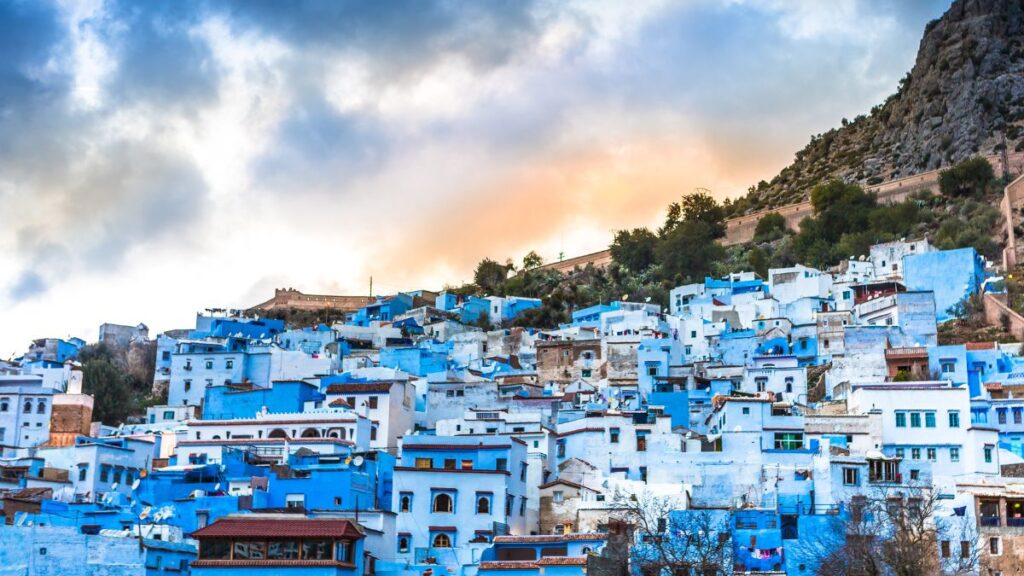
Autumn (September to November)
Autumn provides yet another sweet spot for Morocco. The days bring warm weather but the summer heat has eased. It’s a great season to experience the Sahara Desert without the danger of extreme heat.
September is less crowded, with most tourists gone, so you can enjoy the must‑see sites without long lines. October and November are considered shoulder season, offering mild temperatures, better hotel rates, and balmy evenings in the cities or wandering vibrant medinas.
The weather conditions for hiking in the Atlas Mountains are comfortable, with pleasant temperatures and arresting scenery as the landscape shifts into autumn colors.

Summer (June to August)
Summer months in Morocco are known for extreme heat, especially inland. In Marrakech, daytime temps can reach 38–40°C. If you’re heat‑sensitive, it’s best to stay along the Moroccan coastline, where coastal breezes in Essaouira, Tangier, and Agadir bring pleasant weather and make the days more inviting.
These seaside towns are perfect for beaches, swimming, and carefree outdoor activities, though expect higher hotels prices and an influx of local vacationers during August summer holidays.
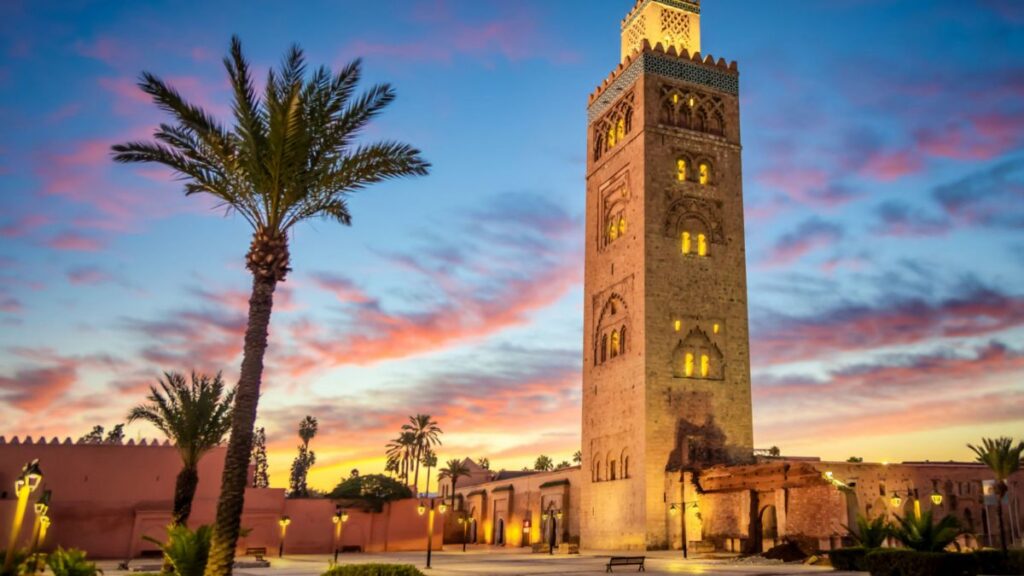
Winter (December to February)
Winter months in Morocco are cool, particularly at night, though daytime temps remain agreeable in most regions. Marrakech stays vibrant, and it’s an ideal season to experience the Sahara Desert without the discomfort of extreme heat.
The Atlas Mountains receive snow, offering a rare chance for skiing in Africa and memorable winter experiences. Winter rains are heaviest in December and January, yet travel remains manageable. Along the Atlantic coast, spots like Taghazout and Mirleft attract those seeking surf and the thrill of big winter waves.
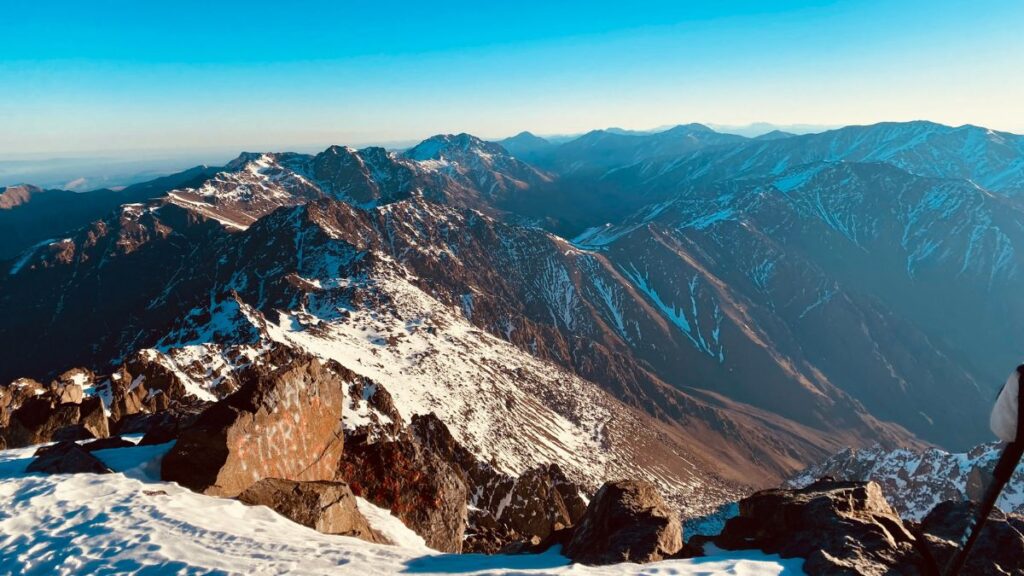
Essential Morocco Travel Tips
When planning your Morocco vacation, it’s important to consider language, connectivity, and local customs. These travel guide notes help you move with ease through cities, northern Morocco, rural areas, and bustling medinas, ensuring meaningful travel experiences that are both respectful and friction‑free.
Learn a few phrases
French and Arabic are widespread in Morocco, while Berber is spoken in certain areas. A simple ‘Bonjour’ or ‘Salam’ will often open doors, especially in souks or local cafés. English is not always spoken, even in tourist areas.
Using a few phrases like ‘merci’ or ‘la shukran’ makes interactions friendlier, helping you navigate Moroccan food ordering, daily travel experiences, and asking for directions in both cities and rural regions.
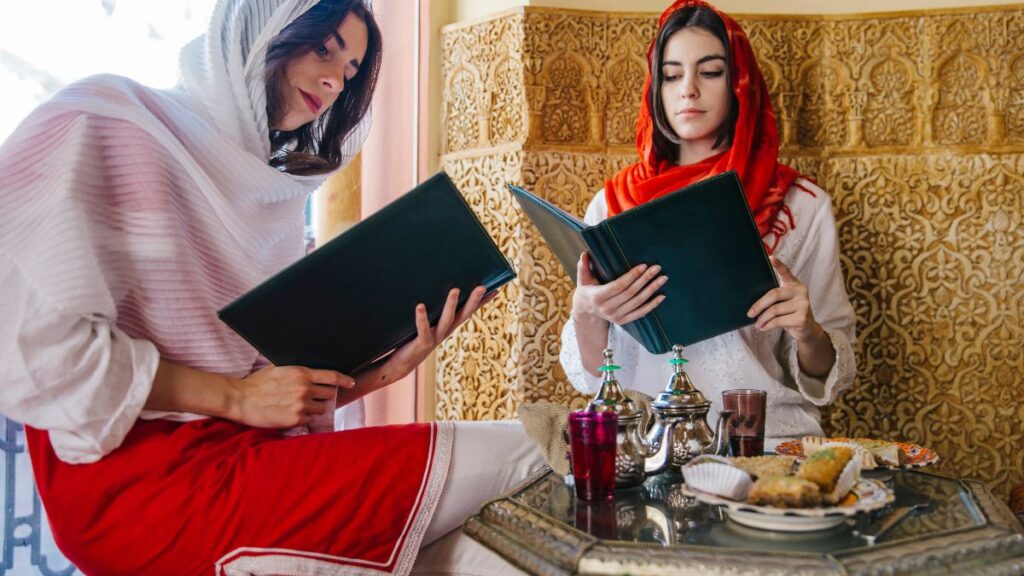
Get a local-friendly data plan with Ubigi
A stable internet connection is a must for seamless Morocco travel. Since many street signs and directions aren’t in English, you’ll rely on maps, translation apps, and dependable connectivity.
With an Ubigi eSIM, you can skip local SIM card shops and connect instantly by scanning a QR code. You can pick among 1GB, 3GB, 10GB or even unlimited data plan. Ubigi offers wallet‑friendly rates, real‑time usage monitoring, and prevents double billing.
This freedom supports booking taxis, checking weather conditions, including summer heat that exceeds 40°C during the peak tourist season of July and August, and finding restaurants quickly, even during the holy month of Ramadan.
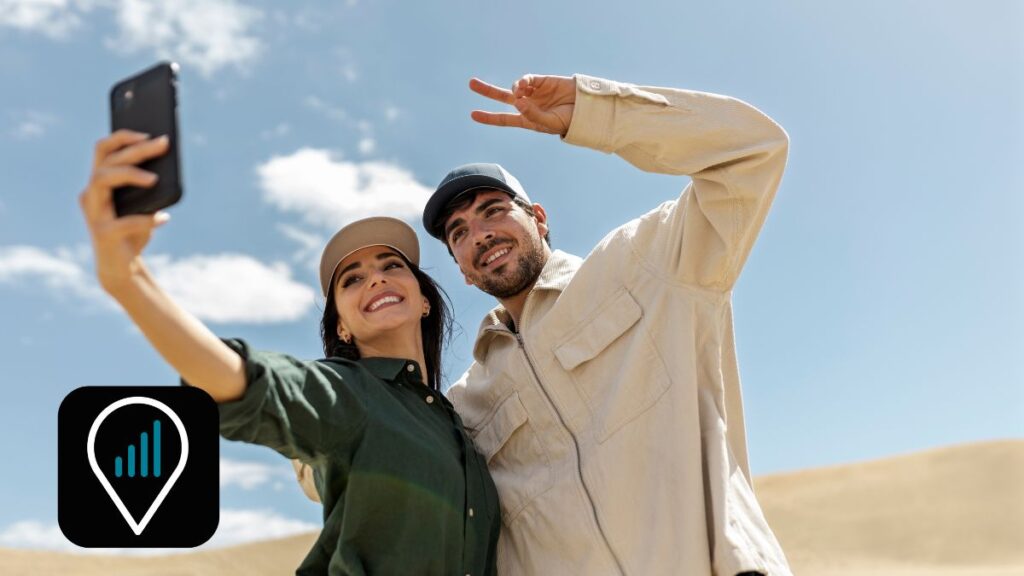
Respect local culture
Morocco’s cities and even rural regions hold strong traditions. Modest dress is required, especially in mosques, medinas, or small villages. Long trousers and shirts work best for men.
For women, covering shoulders and knees is advised to respect local customs in this Islamic country. Tipping is customary round up the bill or leave about 10% at small cafés. During the holy month of Ramadan, many places close during the day and alcohol sales are restricted, so plan meals accordingly.
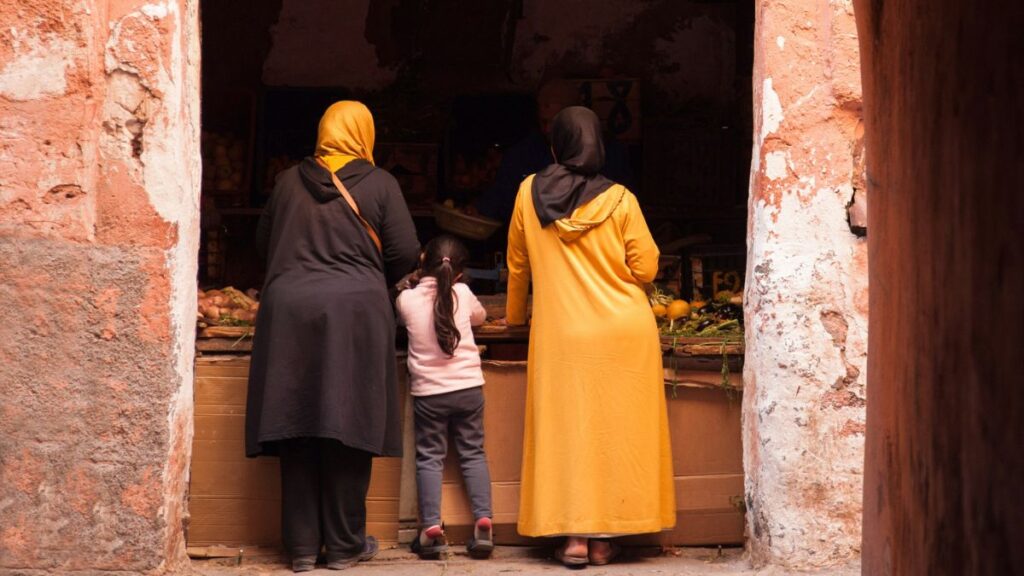
Bargain in souks
Bargaining is the norm in Moroccan souks, where Moroccans expect some friendly haggling, especially for handicrafts, fabrics, or unique finds in bustling medinas. A good rule is to start at about half the asking price.
Stay courteous, keep a smile, and never feel pressured into buying. Often, if you walk away, merchants will call you back with a sweeter offer. For many tourists, haggling is not just about discounts but a key part of the Moroccan adventure and the lively shopping experience.
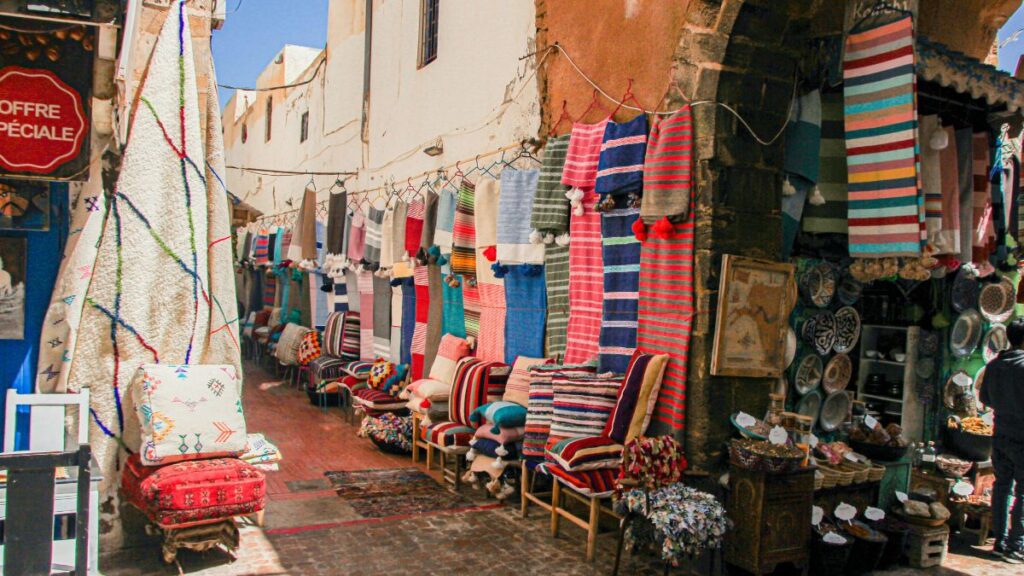
Stay hydrated
Morocco’s arid environment makes it essential to stay hydrated. Bring a refillable bottle, especially for long medina walks or adventurous desert excursions that can be tiring under the warm weather.
Bottled water is widely available, but if you’re sensitive, avoid ice and stick to sealed drinks. Days bring pleasant temperatures, particularly in April, May, September, and October – all considered ideal months for planning your Morocco vacation.
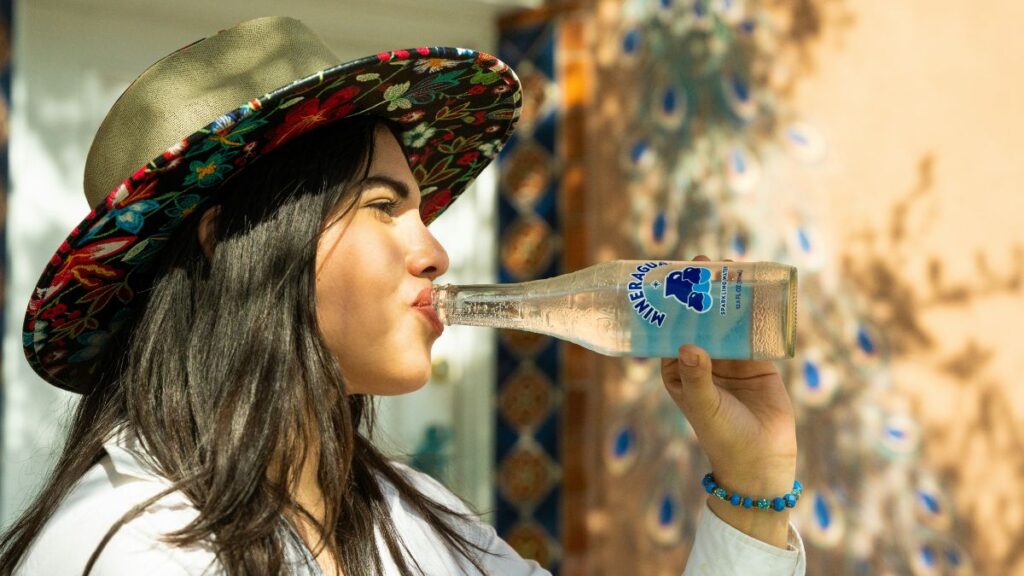
Conclusion
For your Morocco itinerary, consider what you desire most. Spring offers mild temperatures and lush landscapes, ideal for city strolls and Atlas Mountains trekking. Fall brings clear skies and fewer tourists at major attractions like Marrakech and Fez.
The hot months are perfect for beach lovers enjoying the Atlantic breeze, while cooler months let you explore the Sahara Desert with pleasant weather and comfortable days.
Pick up a couple of words in French or Arabic and you’ll feel right at home. Sample local Moroccan cuisine, from couscous to Moroccan mint tea, adding rich flavors to your trip. Choose airy clothing and comfortable sneakers for versatile travel. Purchase an Ubigi eSIM data plan to get access to a reliable Internet connectivity without roaming charges!
Morocco suits many moods and fashions. Start mapping out your itinerary and local events. Your Moroccan adventure can keep up with you. Explore your travel options now!

Frequently Asked Questions
When is the best time to visit Morocco for pleasant weather?
Morocco’s best time to visit is from March to May or September to November. You get the best of mild weather and lighter crowds during these months.
Is Morocco safe for international travelers?
Yes, Morocco is safe. Keep a sharp eye in crowded areas and heed localwarnings. Honor local traditions for a seamless and delightful journey.
What should you pack for a trip to Morocco?
Bring some light layers, comfy walking shoes, and sunblock. Pack conservatively out of respect for locals and their culture, particularly in rural regions and at holy places.
Do you need a visa to visit Morocco?
A lot of nationalities can visit Moroccovisa-free up to 90 days. It might be best to check your own countries requirements before traveling to avoid being turned away.
Are there any major festivals or events you should plan around?
Yes, Ramadan and Eid. Certain establishments might shut down or operate on reduced hours during Ramadan. Prepare yourself if you come during these times.
What is the local currency in Morocco?
Local currency is the Moroccan Dirham (MAD). Credit cards are accepted in a lot of places, but it’s handy to have cash on you for little things.
How do you get around in Morocco?
You may travel by train, bus or taxi in Morocco. Trains link all the major cities and buses and taxis reach smaller towns and rural places.



